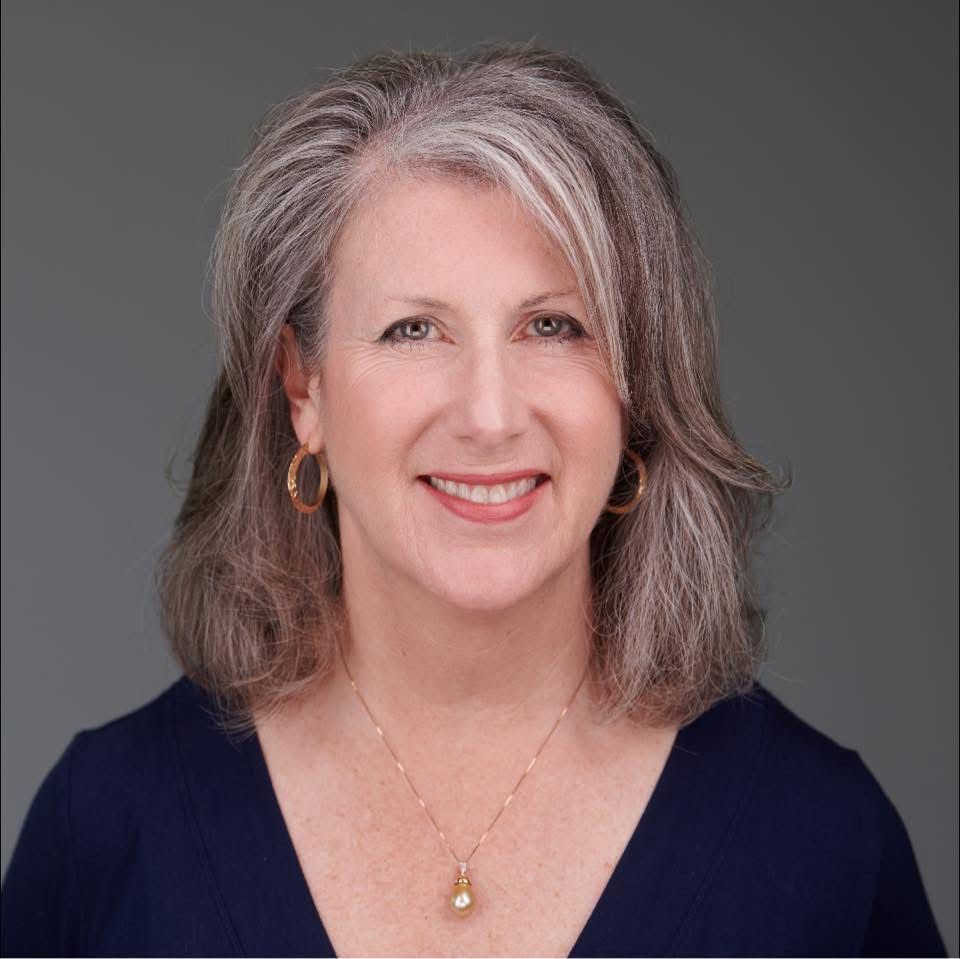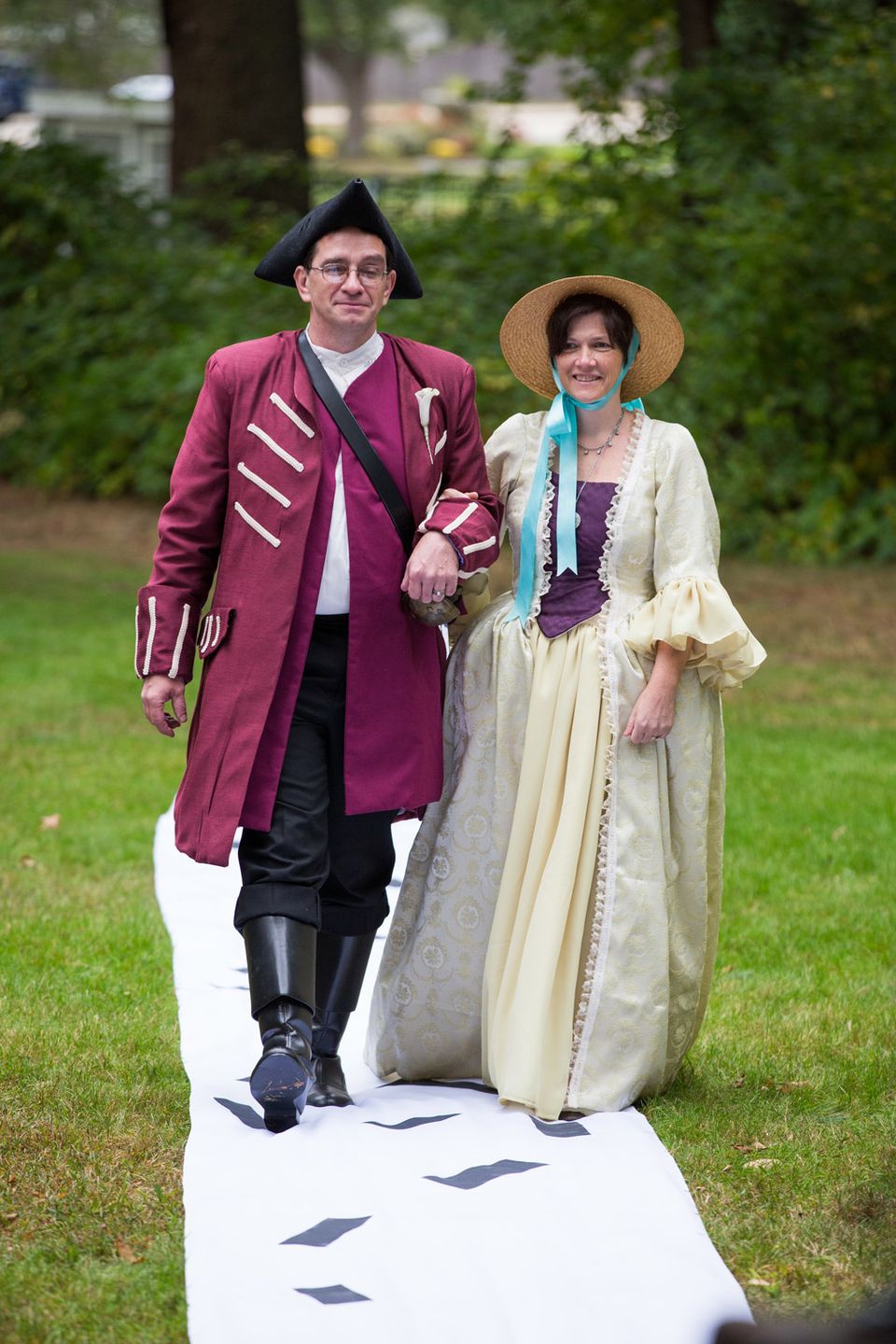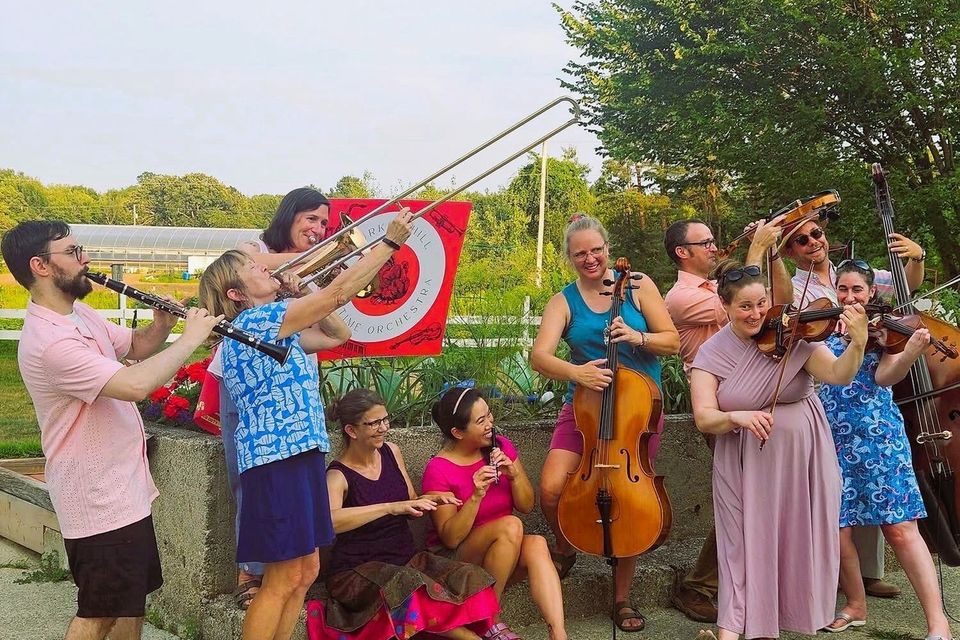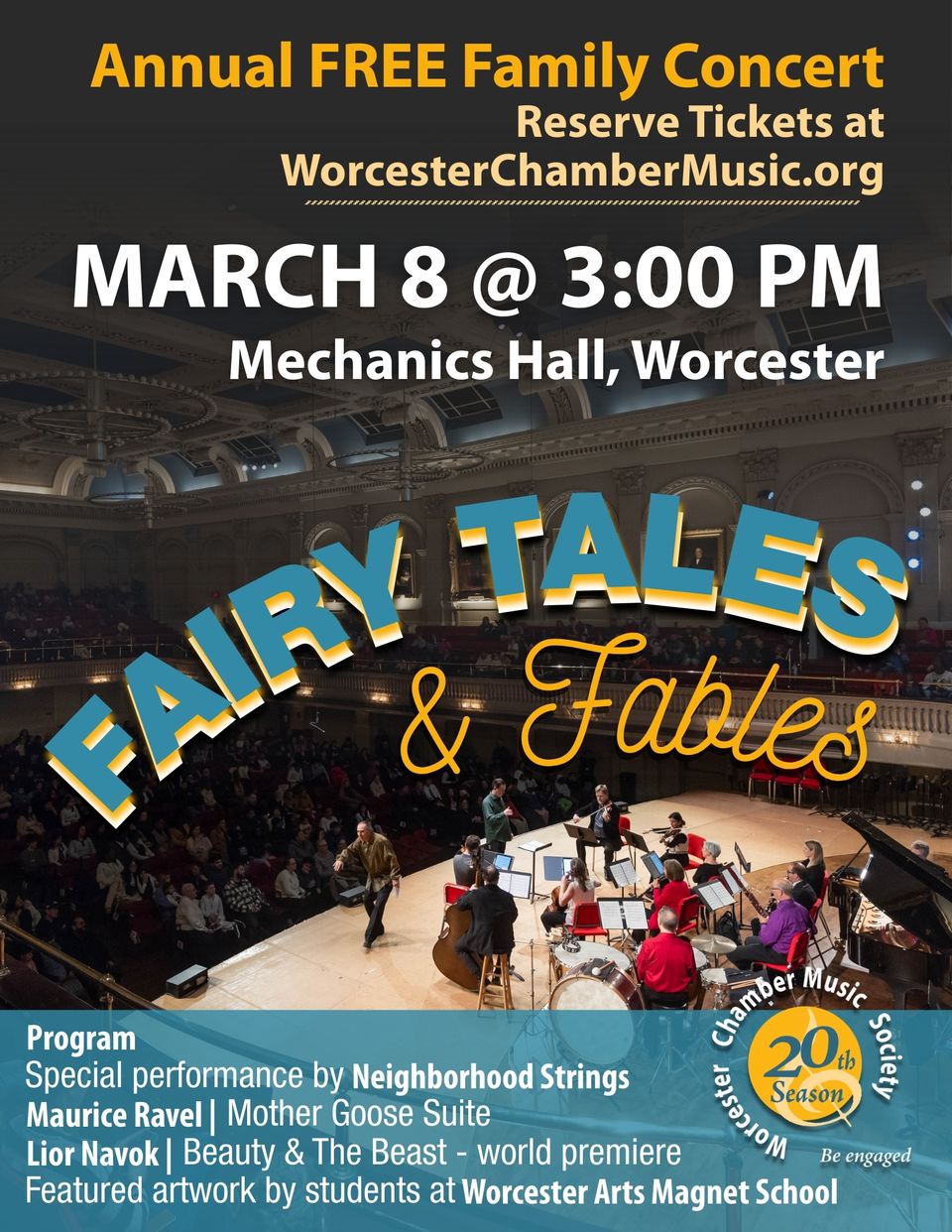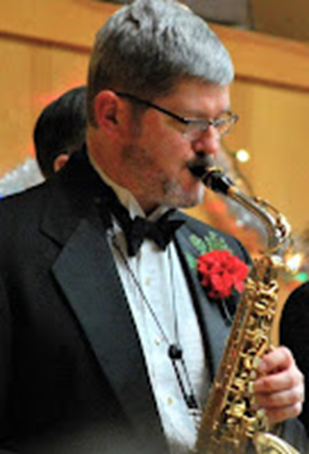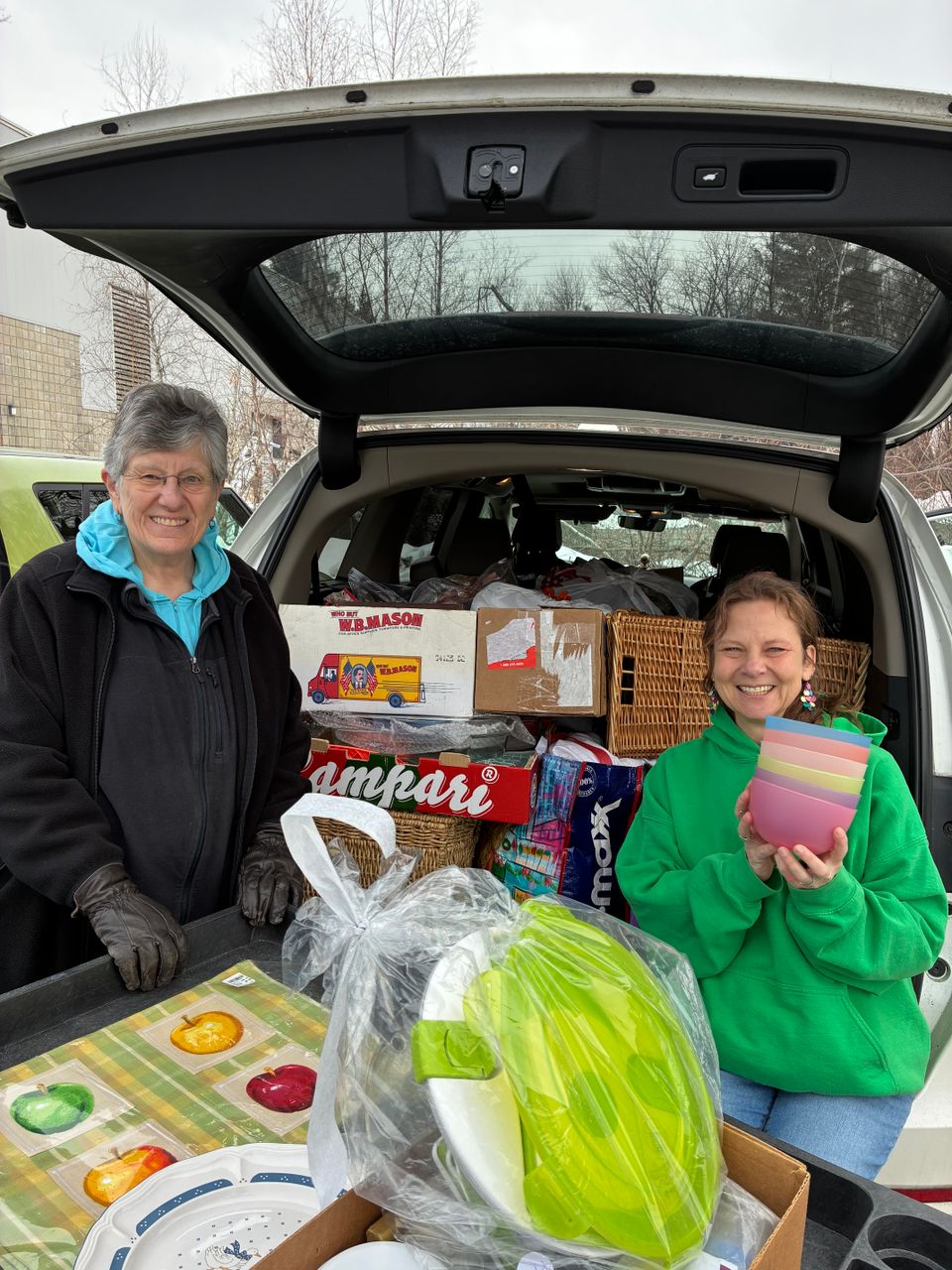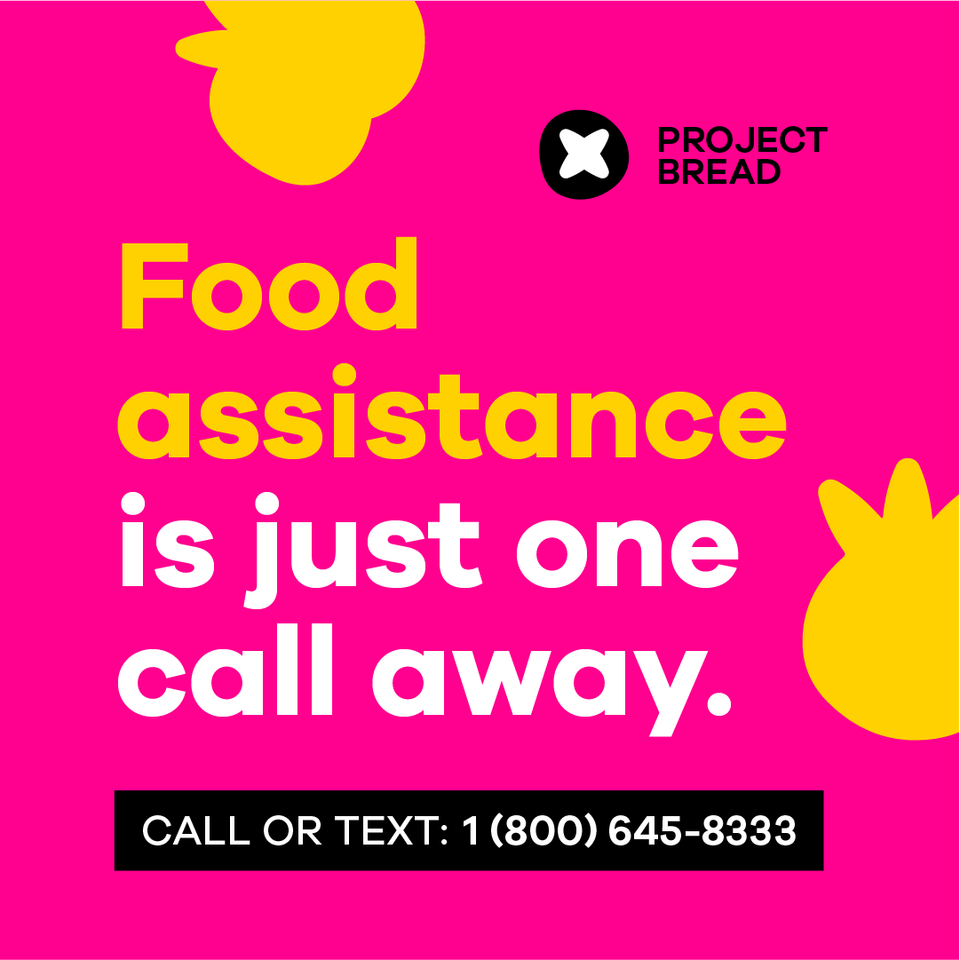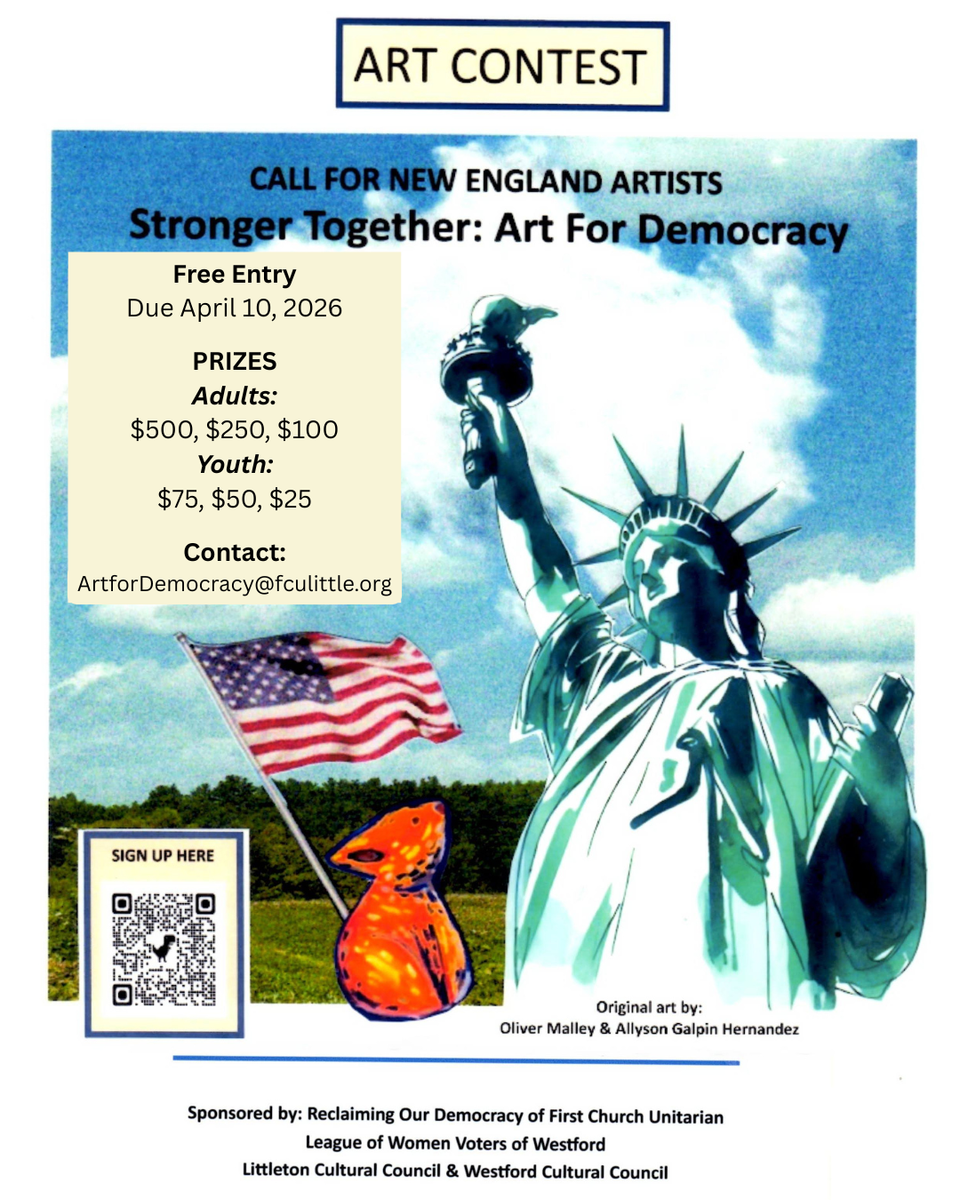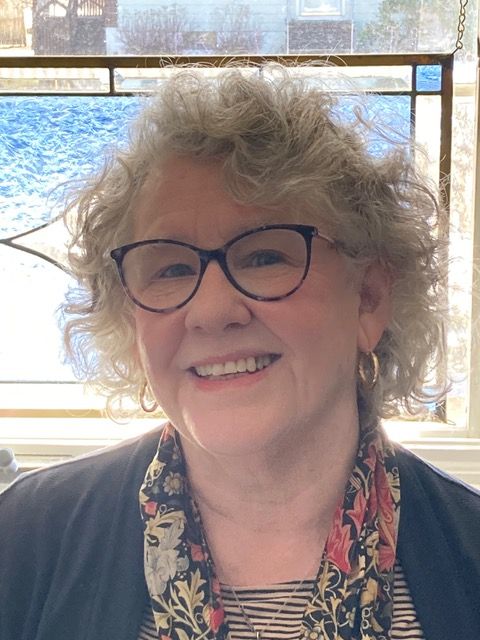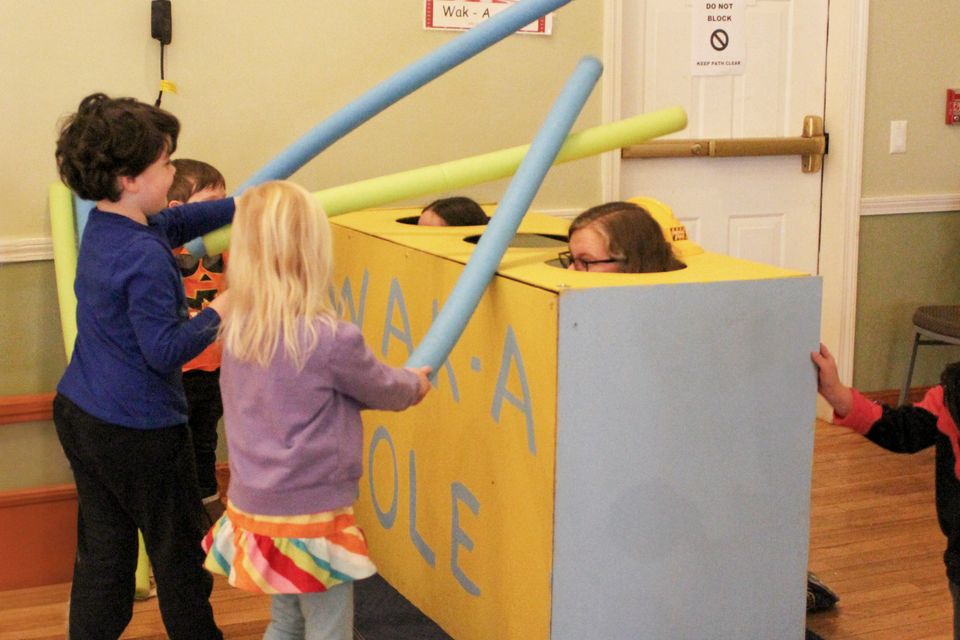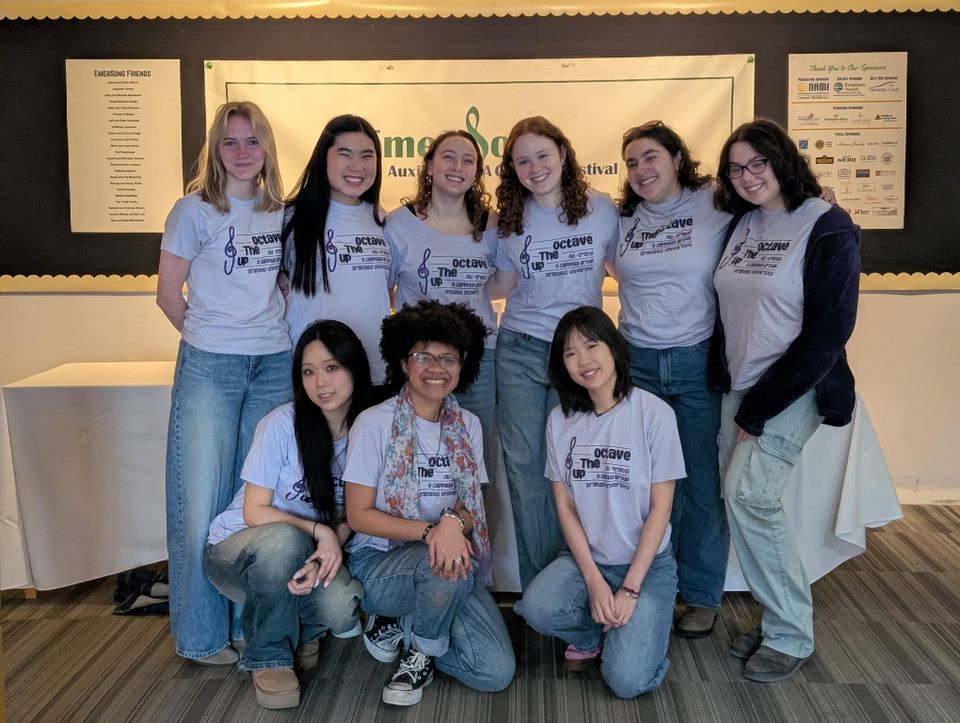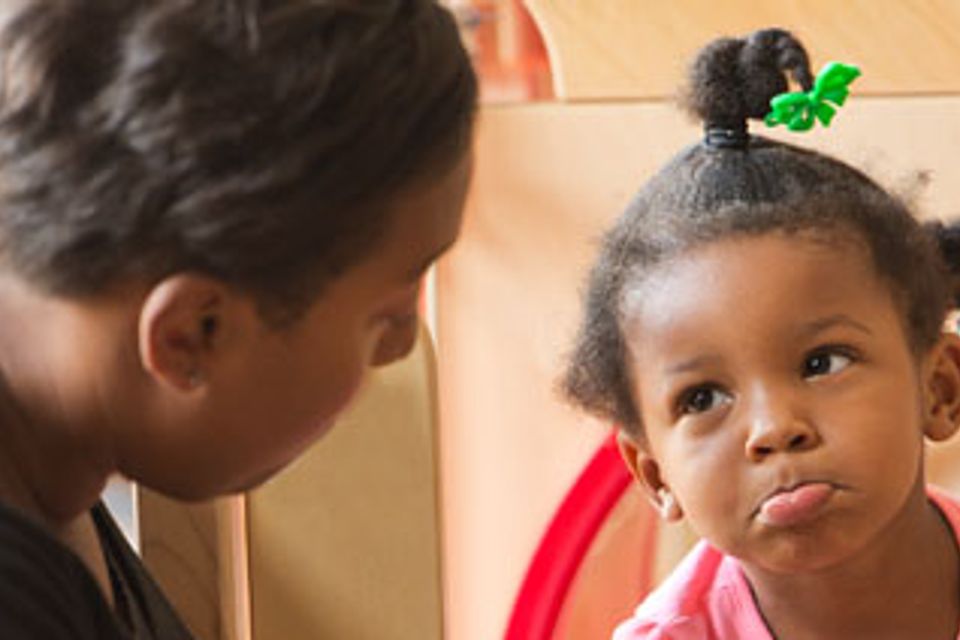Services every Sunday at 10AM For more information about these services, or to download the Order of Service, visit
www.fpc-stow-acton.org/services.
Line Dancing! Saturday March 7, 7:00 – 8:30Back by popular demand! The Arts committee is sponsoring another night of chill-busting Line Dancing from 7:00-8:30. Our leader will again be Paul Hughes, who is very good at teaching the steps and routines. So even the most beginner dancer will still be successful and have fun! Families are welcome. This event is free, but donations will be gratefully accepted to offset Paul’s fee.
Our building at 353 Great Road, Stow is designed to be inclusive and accessible to people of all abilities, including wheelchair users. There is free parking.
Guest Table Community Dinner, March 13, 5:30Please join us Friday, March 13 for our next dinner. We offer options made with vegetarian, gluten-free, or dairy-free ingredients. All meals are nut-free. Doors open at 5 PM, dinner is served at 5:30 PM.
Our dinners, in the past and present, are sponsored by the generous donations from the Stow Community Chest. We are also grateful for the consistent support we receive from the Stow Council on Aging and The Stow Food Pantry.
Meals take place in Fellowship Hall at First Parish Church of Stow & Acton. FPC is located at 353 Great Rd in Stow. Our building is designed to be inclusive and accessible to people of all abilities, including wheelchair users. There is plenty of free parking.
If you have questions or would like to volunteer to help with a meal, please email
fpcguesttable@fpc-stow-acton.org.
Sunday 3/15, 3PMSuzie Cartreine and the Turkey Hill Ragtime OrchestraThe FPC Music Committee is proud to present Suzie Cartreine and the Turkey Hill Ragtime Orchestra in concert in the FPC Sanctuary. Toe-tapping fun for the whole family!
The Orchestra plays vintage arrangements of ragtime music and popular songs from the 1890’s – 1920’s. That includes rags, fox-trots, slow drags, two-steps, waltzes and more, and features works of Joplin, Salisbury, Lamb, Turpin, Berlin, and others. They put a smile on your face and a spring in your step!
Founded in 2022, Turkey Hill Ragtime Orchestra sprang from pianist Suzie Cartreine’s lifelong love of ragtime, combined with her academic interest in historical performance practice.
The band is drawn from a roster of professional-level musicians from the Greater Boston area. Recent appearances include the New England Folk Festival, Chelmsford Open Spaces, the Medford Library Summer Concert Series, and numerous porchfests in the Boston area. Suzie Cartreine was Director of Music and Organist at FPC from 2002 to 2011.
The suggested donation is $20–40. Donations will be accepted at Eventbrite, at the door, and at coffee hour on March 8 and March 15.
You can find find audio and video samples on YouTube:
https://www.youtube.com/@TurkeyHillRagtimeOrchestraGame Night, Friday March 20, 7-9PMAll are welcome to FPC’s Multigenerational Game Night. Games will be provided, but feel free to bring your own game to share. Children under 13 must be accompanied by an adult. Enjoy free parking, free snacks, and free fun! Email Chip with any questions at
flyingsheep2010@gmail.com.



